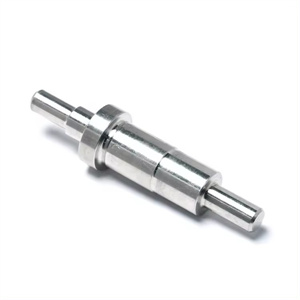Compared to casting, CNC machining has the following significant advantages:
High precision: CNC machining can achieve micrometer level machining accuracy through computer control, ensuring that the dimensions and shapes of components meet design requirements. In contrast, it is difficult to achieve such high accuracy during the casting process due to factors such as material fluidity and cooling rate.
High efficiency: CNC machining can achieve continuous and automated processing, greatly reducing production cycles. Casting, on the other hand, requires multiple processes such as mold making, melting, pouring, and cooling, resulting in a relatively long production cycle.
Flexibility: CNC machining can quickly adjust machining parameters and tools according to different design requirements to adapt to the processing of components with different shapes and sizes. Casting, on the other hand, requires designing corresponding molds based on the shape and size of the product. The mold production cycle is long, and once the mold design is completed, it is difficult to make significant modifications.
High material utilization: CNC machining can directly cut the required components from raw materials, reducing material waste. During the casting process, due to the influence of material fluidity and cooling rate in the mold, some waste and excess materials are often produced, which reduces the material utilization rate.
Can process complex shapes: CNC machining can process various complex surfaces, holes, and concave convex shapes, with strong adaptability. Although casting can produce rough parts with complex shapes, it may not reach the level of CNC machining in some details and accuracy.
Good repeatability: The machining process of CNC machining is completely controlled by computers, and the results of each machining are consistent, ensuring the stability and reliability of product quality. During the casting process, various factors such as material composition and temperature control may lead to unstable casting quality.
CNC machining has significant advantages over casting in terms of precision, efficiency, flexibility, material utilization, the ability to process complex shapes, repeatability, and environmental protection and energy conservation. However, casting also has its unique advantages, such as the ability to produce rough parts with complex shapes and inner cavities. Therefore, when selecting processing methods, it is necessary to comprehensively consider the specific needs and processing conditions of the product.
